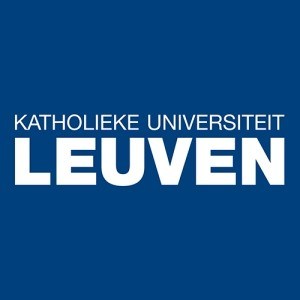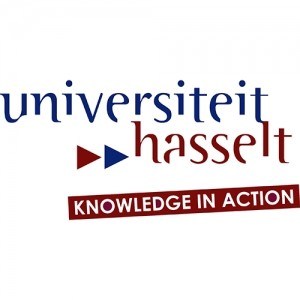Photos of university / #kuleuven
Materials Engineering at KU Leuven offers a comprehensive and innovative programme designed to equip students with a deep understanding of the properties, processing, and application of materials used across various industries. This interdisciplinary field combines principles from physics, chemistry, and engineering to develop new materials and improve existing ones, addressing societal challenges such as sustainability, energy efficiency, and technological advancement. The programme emphasizes both theoretical knowledge and practical skills, allowing students to engage in cutting-edge research, experiments, and industrial projects. Throughout the curriculum, students explore topics such as metallurgy, ceramics, polymers, composites, nanomaterials, and biomaterials, gaining insights into their structure, synthesis, characterization, and performance. They learn to apply modern analytical techniques and computer-aided design methods to innovate and optimize material properties for specific applications. The programme also focuses on sustainable materials development, lifecycle analysis, and environmental impact, preparing graduates to contribute to the development of green technologies and eco-friendly solutions. Through collaborations with industry partners and participation in internships, students acquire valuable hands-on experience and develop professional competencies that enable them to pursue careers in research and development, manufacturing, quality control, and consultancy. The Master's programme in Materials Engineering at KU Leuven is tailored to foster critical thinking, problem-solving skills, and adaptability, ensuring graduates are well-prepared to meet the demands of a rapidly evolving technological landscape. With access to state-of-the-art laboratories and research facilities, students are encouraged to engage in innovative projects and contribute to advancements in materials science. Whether aiming for a career in academia, industry, or entrepreneurship, students will find a rich learning environment dedicated to excellence, innovation, and societal impact.
Core Courses
Materials Families
- Advanced Metal Processing & Case Studies
- Metals: Production and Recycling
- Ceramics and Powder Metallurgy
Methods and Techniques
- Materials Modelling and Simulation Techniques
- Materials Characterisation Techniques I
- Sustainable Materials Management
Applications
- Surface Science and Engineering
- Materials in Service
- Materials Physics and Technology for Nanoelectronics
Design
- Design and Analysis of Experimentation
- Project Work and Problem Solving linked to the Core Courses: Part I
- Project Work and Problem Solving linked to the Core Courses: Part II
Options
Students choose one option 'Materials Families and Application Domains'.
Metals and Ceramics
- Metals: Shaping and Joining
- Advanced Ceramic Materials
- Nanomaterials for Nano-electronics
Polymers and Composites
- Composites Manufacturing
- Mechanics of Composites
- Polymer Processing
- Design and Applications of Polymers and Composites
Nanomaterials
- Semiconductor Physics
- Semiconductor Devices
- Advanced Ceramic Materials
- Nanomaterials for Nano-electronics
Biomaterials
- Structure, Synthesis and Cellular Function of Macromolecules
- Biomaterials I
- Host Response to Implanted Materials
- Next Generation Biomaterials
Elective Packages
Professional Profile Packages
Research-oriented Package
- Materials Characterisation Techniques II
- Materials Modelling for Forming Process Simulations
- Computational Thermodynamics in Materials Design
- Scientific Writing
Production-oriented Package
- Industriële stage: Materiaalkunde / Industrial Internship: Materials Engineering
- Bedrijfservaring: Materiaalkunde / Industrial Experience: Materials Engineering
- Hazardous Materials and Safety in the Process Industries
Management-oriented Package
- Industriële stage: Materiaalkunde / Industrial Internship: Materials Engineering
- Industriële stage: Materiaalkunde / Industrial Internship: Materials Engineering
- Project Management
Materials Engineering Fundamentals
Depending on your background, the programme director will decide whether you have to follow one or several of the preparatory 'Materials Engineering Fundamentals' modules listed below. If yes, the first module replaces the fixed 'Professional Profile Packages' except for the course H0S65A 'Scientific Writing' or H06T8A 'Hazardous Materials and Safety in the Process Industries' or H04X2A 'Project Management'. The second module replaces the remaining 3 credits form the 'Professional Profile Packages' and the 'Elective Courses'.
Fundamental Materials Science
- Physical and Chemical Foundations of Materials Engineering
- Materials Selection
Mathematical Materials Science
- Transport Phenomena
- Continuum Modelling of the Mechanical Response of Materials
Polymers and Composites
- Properties of Composites A&B
- Physics and Mechanical Behaviour of Polymers
Elective Courses
- Capita selecta ingenieurswetenschappen I.1. (Athens / Summer Course)
- Functional Anatomy of the Human Locomotor System
- Capita selecta ingenieurswetenschappen I.2. (Athens / Summer Course)
- Textile Preforms for Composites
- Production Machines and Systems
- Chemistry and Characterisation of Surfaces and Thin Films
- Basics of VLSI Processing
- Ecodesign and Life Cycle Engineering
- Musculoskeletal Biomechanics
- Artificial Organs and Tissue Engineering
- Chemistry at Nanometre Scale
- Computational Methods in Solid State Physics
- Resource Recovery and Recycling
- Reliability and Yield for Micro- and Nanoelectronic Components
- Capita selecta ingenieurswetenschappen II.1. (Athens / Summer Course)
- Applied Physical Chemistry
- Water Technology
- Powder Technology
- Recent Developments in Composites Research and Technology
- Capita selecta ingenieurswetenschappen II.2. (Athens / Summer Course)
General Interest Courses
- Industrial Organisation: Theory and Applications
- Organizational Behaviour
- Philosophy of Technology
- Interdisciplinary Perspectives on Development and Cultures
- Energy Economics
- Engineering & Entrepreneurship
- Entrepreneurship in de praktijk / in practice
- Studium generale: mens- en wereldbeelden
- Engels in de bedrijfsomgeving
- Frans in de bedrijfsomgeving
Master's Thesis
Requirements
- Except for native speakers, students should present proof of a test of English proficiency: Grade Point Average 75 % + TOEFL paper test (550) or computer test (213) or iBT (92).
- All applicants (EEA and non-EEA) will have to pay an application fee of 50 € to process their file.
- PDF scans of your diplomas and transcripts of academic records
- PDF scan of the translation of your diploma and official transcripts
- The PDF scans of the TOEFL or IELTS certificates have to be uploaded in the web application Applicant. The original TOEFL or IELTS certificates have to be sent directly by ETS or by the official IELTS test centre administered by The British Council or IDP Education to International Admissions and Mobility at KU Leuven. Alternatively, you can also request ETS or the British Council to make your test result available to KU Leuven online, so we can verify your result via the online verification tool.
- If you still have to take the test by the time you want to submit your application file, upload a proof of registration for the TOEFL or IELTS test in the meantime. The proof of registration should mention the date when you will be taking the test.
- PDF of the proof of payment of the application fee made either via bank transfer or via credit card
- PDF scan of the identity page of your passport
- PDF of your motivation letter (recommended size: one A4 page)
- PDF of your CV
The Materials Engineering program at KU Leuven offers a range of financing options to support students throughout their studies. International students and Belgian residents alike can benefit from various scholarships, grants, and financial aid schemes designed to alleviate the costs associated with higher education. The university provides scholarships based on academic excellence, merit, and need, which are available to both domestic and international students. These scholarships often cover partial or full tuition fees, and some include a stipend for living expenses. KU Leuven also collaborates with national and international organizations to facilitate funding opportunities for its students. For example, students from the European Union may access grants provided through programs like Erasmus+, which support student mobility and exchange projects, enabling students to study abroad for a semester or a year with financial assistance. Non-EU students can explore scholarship opportunities through the Flemish government, specific faculty grants, or private foundations that support STEM education. Additionally, the university offers financial advice and support services to help students identify suitable funding options, prepare application documents, and manage their finances effectively. Student employment is also encouraged, with official part-time job opportunities available for students to supplement their income during the program. It is advisable for prospective students to check the official KU Leuven website and contact the university’s financial aid office for the most current and detailed information regarding available funding opportunities, application procedures, and eligibility criteria. Overall, KU Leuven is dedicated to ensuring that talented students from diverse backgrounds can access its high-quality Materials Engineering program without financial barriers.
Materials Engineering at KU Leuven offers a comprehensive curriculum designed to prepare students for a versatile career in the field of materials science and engineering. The program emphasizes the study of the structure, properties, processing, and applications of various materials, including metals, polymers, ceramics, and composites. Students gain a solid foundation in physics, chemistry, and engineering principles, enabling them to understand the behavior of materials at both microscopic and macroscopic levels. The coursework includes modules on materials characterization techniques, thermodynamics, mechanics of materials, and materials selection and design. Practical laboratory sessions and project-based learning are integral parts of the program, providing hands-on experience with modern analytical tools and manufacturing processes.
The program encourages an interdisciplinary approach, combining knowledge from chemical engineering, mechanical engineering, and applied physics to innovate in the development of new materials. Students have opportunities to participate in research projects, internships, and collaborations with industry partners, which facilitate the application of theoretical knowledge to real-world challenges. The program's research facilities include advanced laboratories equipped with electron microscopes, X-ray diffraction equipment, and other state-of-the-art analysis tools.
Graduates of Materials Engineering are equipped to work in various sectors such as aerospace, automotive, electronics, energy, and biomedical industries. They can pursue careers in research and development, materials processing, quality control, and technical consulting. The program also provides a solid foundation for those interested in further academic research or pursuing a PhD. The university’s focus on innovation and sustainable development means students are also encouraged to explore environmentally friendly materials and green technologies. Overall, the program aims to develop highly skilled professionals capable of addressing complex material challenges and contributing to technological advancements across numerous industries.



